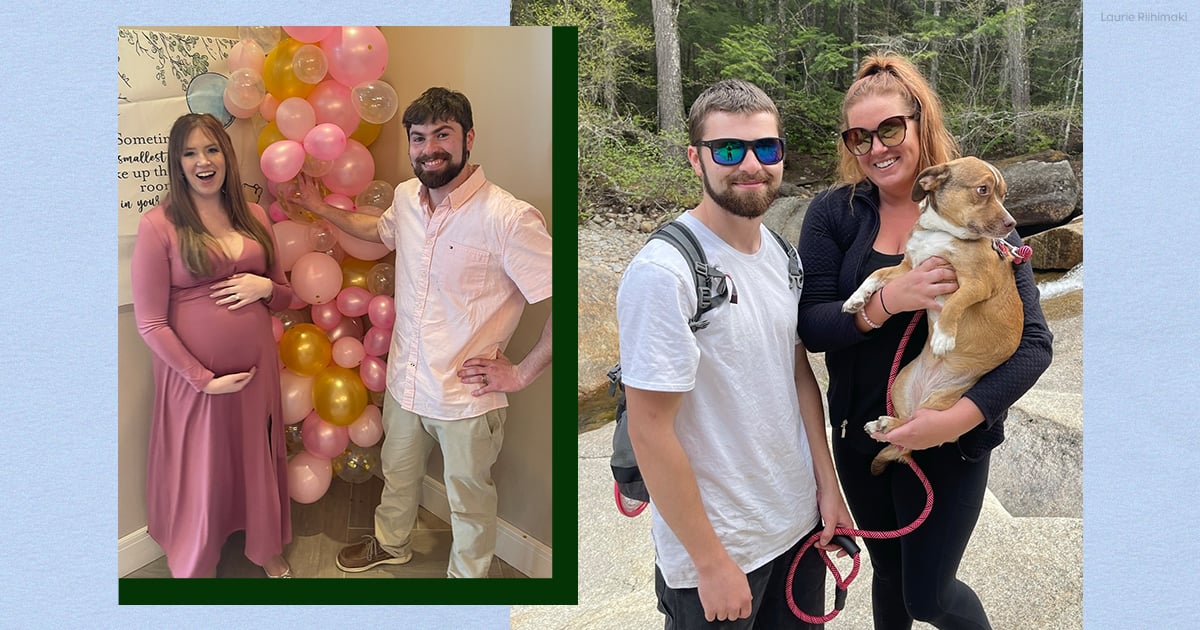In April 2019, I moved from New York City back to my home state of Maine to be with the love of my life, Ben. I had worked long and hard enough to have the luxury of working anywhere, following my dreams of being a writer. I had romanticized the idea of writing a bestseller in a cabin in the woods, Stephen King-style. But the transition wasn’t easy (and I have yet to write a bestseller).
The lack of community was hard for me. I was so used to always being busy seeing shows, performing in plays, working on passion projects, trying new restaurants, and staying out late with friends. I’m not one to sit in despair, though. So, I auditioned for a local play and was cast with a community theater I had worked with in high school.
Theatre has always been my way of socializing and coping. It’s where I feel the most myself. But I noticed something was off this time around. Rehearsals didn’t feel fulfilling. Social anxiety started creeping up, and sometimes, I just didn’t have the words or energy to speak to my castmates.
Then, there was extreme fatigue. I felt like I could sleep all day, and sometimes I did when my boyfriend was at work. On the days I did work, I was more unproductive than ever. Writing felt like such a chore, and my days were becoming more sedentary. That summer, I noticed my shorts started feeling tight, and I no longer loved the look of crop tops showing off my mid-drift.
By Halloween, my favorite little black dress barely fit my stomach and not only did I feel the weight start piling onto my body, but I felt the weight of the world around me. Everything felt harder emotionally and physically, even if it was just washing the dishes. My grandfather, who I was very close to, was dying from cancer, and I wasn’t coping well. My emotions were out of control. I was still anxious in social situations unless I was liquored up, so that became a big trend in my life. And I was depressed and on edge at home unless I was being productive. I’m a Capricorn, so I blamed it on that.
In pictures taken by my sister-in-law at our Thanksgiving celebration, I noticed a lump on the back of my neck, which I would later learn is coined a “buffalo hump,” a fatty lump between the shoulders – a common marker of Cushing disease, a specific type of Cushing’s syndrome, which is triggered by an overproduction of cortisol (often caused by a tumor in the pituitary gland) or long-term use of glucocorticoids and can result in dramatic and rapid weight gain, high blood pressure, muscle weakness, high cholesterol, extreme fatigue, depression, anxiety, irritability, and sleeplessness. Over time, Cushing disease can also lead to other health conditions such as diabetes, osteoporosis, liver and kidney issues, infertility, heart attack, and even death if symptoms are not addressed.
Even with all the symptoms piling up, I didn’t think I had a disease. I mean, does anyone ever think they have a rare disease? I continued to blame my new work-from-home routine for the weight gain and the lack of community I felt with my move to Maine for the all-consuming depression and anxiety I was experiencing. At this point, my ability to leave the house without debilitating anxiety was impossible, and I dreaded family gatherings, trips to the grocery store, and “fun” social events. My social battery was always drained, and I felt totally disconnected from my body.
By December 2020, insomnia had become a huge symptom. I was barely sleeping, getting three hours a night on average, and over-exercising and dieting to make up for the weight gain. The scale was my lifeline. I checked it every day, and the number just kept going up despite all the work I was doing. I felt hopeless.
Finding a Diagnosis
After reading “Beyond the Pill” by Dr. Jolene Brighten, in late spring of 2021, I felt the urge to dig deeper into the topic of high cortisol. The symptoms Dr. Brighten mentions in her book were spot-on with what I was experiencing. The more I researched, the more I became convinced that the symptoms I was suffering from, including anxiety, depression, panic attacks, night sweats, frequent urination, injuries, hair loss, bruising, insomnia, severe weight gain and fatigue were all caused by high cortisol.
At my next ob-gyn appointment I requested a cortisol test – although my provider insisted it was my thyroid after listening to my symptoms. Still, she appeased me by ordering a 24-urine collection which revealed my cortisol level was sky-high. I was then referred to an endocrinologist who performed an MRI and discovered a tumor in the pituitary gland that had been producing too much adrenocorticotropic hormone (ACTH), stimulating the adrenal production of cortisol and, therefore, resulting in Cushing disease. Hearing the news that I was diagnosed with a rare disease was initially comforting. I was able to drop the guilt I had about “letting myself go” and find comfort in the fact that there were treatment options available. I felt hopeful for the first time in long time.
Three months after being diagnosed with Cushing’s disease, I had surgery to have the tumor removed and then began my road to remission. For weeks, I couldn’t walk on my own due to my body’s inability to make its own cortisol. I was on steroids to help supplement the cortisol I needed and I was in incredible pain due to inflammation and fluctuating hormone levels. But I also knew things were getting better. My hair was growing back, my skin was clear, and the weight was falling off. This kept me fighting.
Nine months later, I was able to taper off steroids completely. My muscles were weakened by the long-term effect of high cortisol, but I felt more like myself than I had in years; I was happy, social, and motivated at work and back in theatre doing what I love.
A New Normal
Every day, I feel blessed to be alive and in remission. If left untreated, Cushing’s survival rate is 50% at five years. But thanks to my own persistence and a wonderful team, I was able to get a diagnosis after about three years of full-force symptoms but only months of pushing for answers. Not everyone’s Cushing’s journey is this smooth. I understand I’m one of the lucky ones.
Now, I’m in my third trimester of pregnancy, after getting married in August 2023. My life is more full than I ever thought it could be during the onset of my symptoms. I won’t lie, some days, life is still hard. I feel pain more than others. I get episodes of adrenal fatigue where it feels like I was hit by a truck. But I continue to take it one day at a time.
Winning this battle taught me the value of slowing down (something my husband has been telling me to do for years). I learned how to advocate for myself, too. You know your body more than your doctor or anyone else. If you feel something is “off” or different, do your research, seek the experts, and advocate for yourself.
Cushing disease pushed me to be stronger than I ever had to be and learn to love myself in every stage – toned body or not. Of course, it is nice to wear the clothes that didn’t fit during my Cushing’s journey. And it feels good to curl my hair and do my makeup without sweating it off immediately, but it also feels ok to throw my hair up in a bun and wear leggings and a sweatshirt without shame. I don’t focus on my appearance as much as I used to. Pushing through those years of hell and coming out the other side stronger feels like a rebirth. After feeling so disconnected for years, being in tune and connected with my body is a gift and something I am grateful for every single day.
Laurie Riihimaki is a full-time freelance writer and managing editor for digital and print publications. Her areas of expertise include sex and relationships, mental health, women’s health, and hormones.




